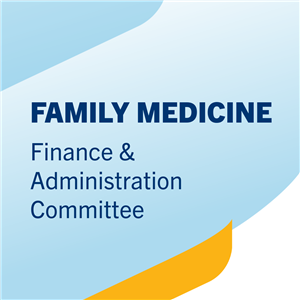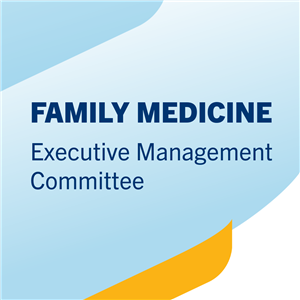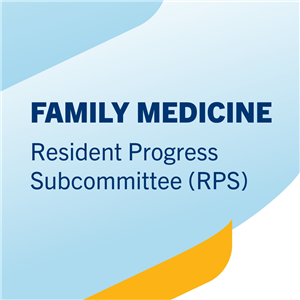
Departmental programs
Our graduate program offers a wide range of research opportunities from experimental biomedical research to functional brain imaging and medical education research.
Researchers in Human Anatomy and Cell Science lead innovative research streams within the University of Manitoba and beyond with successful collaborations and research exchange both nationally and internationally.
Our graduate courses provide fundamental skills in research methodology. We offer training in range of classic anatomical disciplines from gross anatomy, neuroanatomy, embryology and neural development, histology, neuroimaging and morphological techniques.
Research
Our unit has a vibrant research community with established excellence in the neurosciences, cancer biology, cardiovascular health and musculoskeletal functions.
Our researchers
Histology services
The histology platform provides services for researchers and students to process tissues and calls for histopathological examination. We offer paraffin, cryo and electron microscopy techniques including processing, embedding, sectioning, staining and imaging.
Teaching
Training takes place in the state-of-the-art Dr. George Yee Laboratory of Anatomical Sciences.
Here, we combine the traditional approach of dissection with leading educational technologies to foster an interactive and collaborative learning environment.
Students have the rare opportunity of a close contact with dissected human bodies, generously donated by individuals to whom we are eternally grateful.
Students can also virtually explore 3D-rendered bodies on 80” touchscreens and gain hands-on imaging experience with portable ultrasound devices. We facilitate clinical procedural practice using highly realistic cadaveric models, allowing trainees to hone their skills in a low-stake setting.
Watch this brief video to learn more about our anatomy lab.
Current student resources
Milestones and deadlines
There are specific milestones and dates graduate students should be prepared to meet as they pursue their studies. We've listed the most important dates in the accordian below.
Master's program
Here are the important milestones and deadlines for the Department of Human Anatomy and Cell Science master’s program:
Complete GRAD 7500: Finish this within the first term of the program.
Form your advisory committee: Do this within six (6) months after starting the program.
Write your research proposal: Aim to complete this between six to nine (6-9) months after starting the program.
Submit advisor student guidelines to the faculty of graduate studies: Make sure to do this before starting your research, but definitely no later than your first progress report.
Submit progress report: This is due annually by June 1st.
Finish GRAD 7300: You need to complete this before applying to any ethics boards for research approval, or within the first year of the program, whichever comes first.
Present oral thesis defense: Schedule this at least four (4) weeks after informing the HACS Grad Chair in writing.
Deadline to request transfer to PhD program: You have until eighteen (18) months from the start of the program to make this request.
Deadline to request program extension: You can request an extension up to three (3) months before your graduation deadline, but not earlier than four months before that deadline.
For more information about the Department of Human Anatomy and Cell Science master's program and its courses, visit the Academic Calendar.
PhD program
Here are the important milestones and deadlines for the Department of Human Anatomy and Cell Science PhD program:
Complete GRAD 7500: Aim to finish this within the first term of the program.
Form your advisory committee: Do this within the first year of the program.
Submit advisor student guidelines to FGS: Make sure to do this before starting your research, but definitely no later than your first progress report.
Submit progress report: This is due annually by June 1st.
Write your research proposal: Aim to complete this within two (2) years of entering the program.
Pass candidacy examination: This should be completed within the first three (3) years of the program.
Finish GRAD 7300: Complete this before applying to any ethics boards for research approval, or within the first year, whichever comes first.
Deadline to request program extension: You have up to three (3) months before your graduation deadline to request an extension.
For more information about the Department of Human Anatomy and Cell Science PhD program and its courses, visit the academic calendar.
Program forms
You will require a variety of forms throughout your studies. For departmental forms, such as the oral presentation scheduling form or the annual activity report form, please contact us. Forms related to the Faculty of Graduate Studies (FGS) can be found on the FGS website.
Links
Follow the links below for additional student supports:
Awards and scholarships
As a department, we provide the highest quality education in fundamental and advanced anatomical sciences to learners in various professional programs in the health sciences.
Departmental graduate scholarships
- HACS Merit Award
- Ralph A. Mann Memorial Scholarship Award
- University of Manitoba Graduate Fellowship (UMGF)
- Hollenberg Award
Annual scholarship/awards offered to UGME students
- The Dr. Joseph & Dr. Dorothy Hollenberg Memorial Fund Award
Body donation program
Through the body donation program, students gain a deeper understanding of human anatomy through first-hand experience. At the same time, the program gives donors the opportunity to make an invaluable contribution to the advancement of health sciences.
Making advance arrangements can help relieve some of the stress your loved ones will face after your passing. Your advance plans will help your family decide what to do next during a very difficult time.
Faculty and staff
Our highly motivated expert faculty and staff aspire to take the anatomical education of the next generation of scientists and health professionals to the next level.
Events
View more events-

Feb
17Family Medicine Finance & Administrative Services Committee
10:00 AM
-

Feb
18Family Medicine Executive Management Committee
8:30 AM
-

Feb
18Family Medicine Resident Progress Subcommittee
8:30 AM
-
Feb
18Family Medicine Curriculum Renewal Subcommittee -
Feb
19ISME Praxis Series: How AI Readiness and AI Preparedness Among Faculty and Trainees Can Inform What We Do in Healthcare Education -
Feb
19The Dept. of Clinical Health Psychology: Dr. Robert Martin Memorial Lecture - Can AI help solve the mental health crisis? The promise and peril of digital tools in mental health care
You may also be looking for...
Contact us
Human Anatomy and Cell Science
130 Basic Medical Science Building
745 Bannatyne Avenue
University of Manitoba
Winnipeg, MB R3E 0J9 Canada





